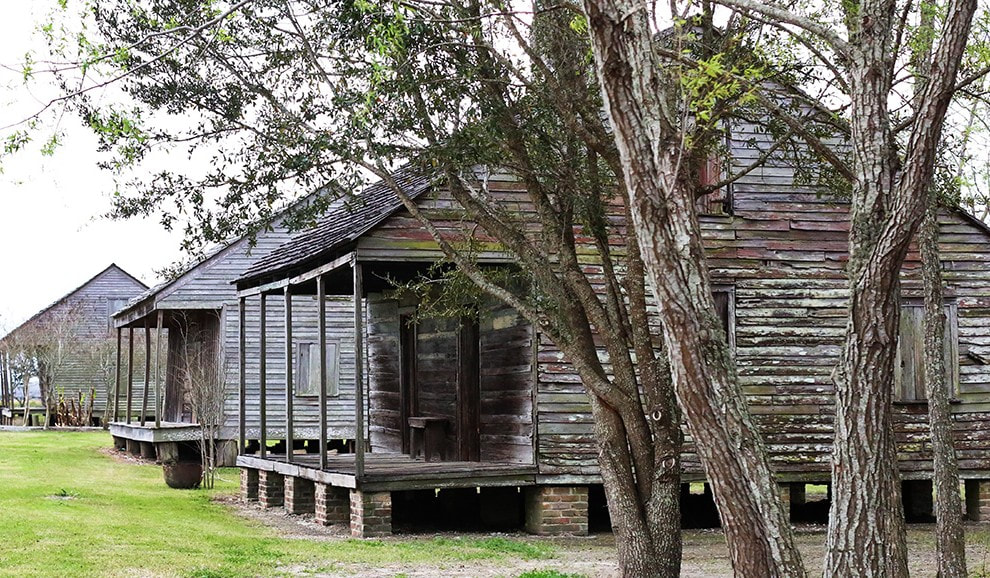|
Friends and neighbors used to rave about elegant Southern plantation houses they’d toured on vacation. Plantation weddings are still popular. But Whitney Plantation west of New Orleans won’t touch the wedding business. Opened to the public in 2014 as a museum about slavery, Whitney refuses to romanticize its past.*
Times are changing . . . gradually. Four years ago, I visited the historic San Diego de Alcala mission church in California. As I recall, a brochure described how and why Spaniards built a mission in that spot, how the priests lived, and what challenges beset them. The next year at Mission San José in San Antonio TX, a ranger explained how drought and disease drove native inhabitants of the region to live and work on the mission grounds. In time they and their descendants created a whole new culture, blending indigenous foods and customs with Spanish language and Catholic faith. The histories we hear depend in part on what questions we ask. If we only ask about the white people in charge of a plantation or mission, we turn to Gone With the Wind for images of suffering. I’m glad there’s a rising interest in asking, researching, and teaching about the forced labor that made plantations and missions possible.** Enslaved people’s sufferings are painful to imagine and, I hope, impossible to romanticize. * Image: Whitney Plantation slave cabins. For more on how diverse sites and programs portray slavery, read How the Word Is Passed by Clint Smith (2021). ** According to the National Park Service, “Tradition has it that the missionaries never forced anyone into a mission, but once there, they could not leave. Those who ran away were often tracked down and returned to the mission.”
6 Comments
1/23/2023 08:44:13 am
Good that the Whitney Plantation organization is brave enough to tell the stories of enslaved people. Many plantations have torn down the quarters where enslaved people lived to erase that past. I think it is naive of the California park service to think there was no coercion or force to get people into the missions. One only has to think of residential schools where native children were taken from their families to think that it was not so benign as they portray it. Then there is the whole cultural violence of changing people's language
Reply
1/23/2023 09:18:48 am
Yes, it takes courage to tell the less romanticized stories. And I'm impressed by Clint Smith's courage as a Black man to ask questions on more traditional tours elsewhere.
Reply
Rick Santovec
1/23/2023 11:46:17 am
An eye opening experience for the American TV Watching public and myself was the ABC Mini-series of the 1970s: ROOTS by Alex Haley. Shown over 10 consecutive nights, the African American experience was never better portrayed to the rest of the country like it was at that time.
Reply
1/23/2023 08:31:34 pm
I missed Roots, regrettably, but recently was strongly influenced by Henry Louis Gates's PSB series on Reconstruction. Not normally a big TV watcher, I'm learning more about different facets of the African American experience as a worthwhile side effect of lying low to avoid Covid and Wisconsin winter.
Reply
Pat Groenewold
1/23/2023 12:48:03 pm
We lose so much of our true history when only the dominant culture stories are told, including losing any real sense of who we are or how we got to this point in our own story. Without ALL the stories of our past, there is NO understanding of our present. Racism and revisionist history harms not only the people of color whose history is ignored, but also all of us in the dominant culture whose history is made up of half-truths.
Reply
1/26/2023 05:38:41 pm
So true! Those of us who are largely part of the dominant culture lose in understanding and much of the time don't even know it, like fish not aware of the water they swim in. Of course does even more harm to the people whose stories are omitted, who are probably well aware of the omission. "Revisionist history" has multiple meanings; to some it's the dominant culture story most of us grew up on, and to others it's any deviation from that story. I wonder who else's story we are still leaving out, that we haven't yet noticed are missing from the larger narrative.
Reply
Leave a Reply. |
AuthorI'm a historian who writes novels and literary nonfiction. My home base is Madison, Wisconsin. Archives
July 2024
|

 RSS Feed
RSS Feed